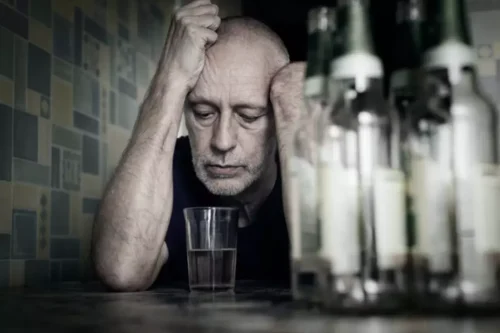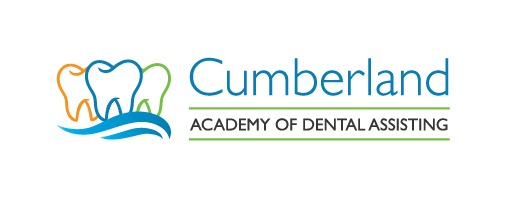
I’m in recovery myself, and have coached many others through the experience. Here are my most tried-and-true tips to help you through this stretch of the year. Some family events and traditions revolve around drinking alcohol, such as parties featuring lots of festive alcoholic drinks or drinking games that the whole family participates in. During the holidays, people tend to overindulge too, which can lead to binge drinking. The holidays are busy, so sometimes it can be difficult to make time for daily meditation, journaling, AA meetings, exercising, and other things that keep you grounded in your recovery. You deserve to feel joy at this time of year just like everyone else, so keep these tips in mind as you navigate your way through the holiday season and through your early recovery.
Tips for celebrating the holidays with family or friends in early recovery:
- It is never a one-size-fits-all process, but more often than not, family members provide links for rebuilding their loves one’s lives.
- At the time, I didn’t deserve anything except for another sober day.
- Part of maintaining an active and engaged sober lifestyle involves change.
- Simple ways to plan ahead include agreeing that no drugs or alcohol are allowed in the house; to agree that no one will lend or borrow money for any reason; and to limit the use of a cell phone for contacting people.
- Volunteer, serve at an event for underserved people, and make an intentional effort to express gratitude by sharing time and effort that benefits others.
- During the holidays, families tend to gather together more often and you may see several relatives you don’t see often.
Alternatively, people recovering from addiction may glamourize past holidays they spent drinking or using drugs with buddies, leading to unintentional rationalizing or relapse. Family visits can also be a source of anxiety, whether you’re in recovery or not. During the holidays, families tend to gather together more often and you may see several relatives you don’t see often. As such, it’s normal for them to ask what you’ve been up to lately, which could prompt awkward conversations about your addiction treatment and recovery. Whether you’re ready to share that part of your life or not, this can make getting together with family stressful. If you previously viewed the holidays as a time of parties and indulgence, it can be helpful to amend your point of view so that you look at the holidays as a time of connection and re-connection.
For young people in recovery

Make them feel included in plans and if you know they are struggling, suggest they attend a meeting or call a sponsor. The healing power of relationships, trust, love and connection is one of the most important tools for families. Damage to trust reframing holidays in early recovery and connection is often at the root of traumatic events that lead to disruptions in the brain’s ability to self-regulate physiologically and emotionally. Trauma can be the loss of connection to one’s self as well as well as the loss of critical psychological connectedness between humans. It is intensely painful to be disconnected from the ones we love, and reconnecting in relationships has the power to transform recovery and the resiliency needed for sustained sobriety.

The Season of Recovery
- Sharing rides with friends who will want to stay the entire evening is too risky if we begin to feel uncomfortable.
- Have a plan for saying “no” to offers of drugs or alcohol, especially when people ask why you aren’t partaking or are pressuring you.
- A trigger can be visual, such as watching someone drink alcohol.
It’s better to miss them this time around in order to increase the likelihood that they will be alive, well, and able to participate in future events. For those of us in early recovery, the holidays can remind us of past rifts and wrongs, but they also present new opportunities for mending broken relationships. Healthy boundaries and clear communication can help start the holiday season with a clean slate for forging future connections. So whether or not your holidays are all the way happy, here’s to a holiday season that is healthy in recovery. If you or someone you know is struggling with addiction, don’t hesitate to seek help and support. Your journey to recovery is a path toward a brighter and more fulfilling future, and the holiday season can be a season of healing and transformation.
Spending time with family members and friends can make you feel uncomfortable, stressed, and almost on-the-edge. Your friends and family at Lighthouse Recovery Institute will be here to help you navigate these stressful days. If you feel that you don’t have the strength to navigate the holidays by yourself, you don’t have to. Contact us and learn more about our aftercare recovery program to access the support you need this time of the year.

Thinking about how you will handle the tempting situations you will encounter over the holidays will help you make a plan that will allow you to navigate them successfully. Plans could include having a ride or knowing public transportation schedules if you need to leave an event suddenly, practicing how you will turn down a drink, or deciding what to do if you begin to feel uncomfortable. • We encourage you to be supportive and proactive about your family member’s recovery. You can reach to them in a way that lets them know you trust them with their own recovery but that you are there for them if needed.
Dec A Framework for Staying Sober Through the Holidays in Early Recovery
- I had been in and out of recovery the past 5 years and she so badly did not want to mess up whatever was working down in Florida.
- Healthy boundaries are physical and emotional limits that people set for themselves to safeguard their wellbeing.
Read Kali’s story, Alone on Christmas, for strategies on how to cope when spending the holidays alone. Headaches, sluggishness or low energy, lack of mental clarity, and sugar cravings can all come from being dehydrated. Your cup of herbal tea, non-caffeinated drinks, or the fruits and vegetables you eat can all count towards your water content too. Here at BTG we talk about the importance of eating good sources of protein for our neurotransmitter health or mood repairing and stabilizing forces. It can be tempting during the holiday to eat a bunch of junk food but it will do nothing for your mood or your cravings. Doing things like skipping a meal, or not including protein can lower your resilience or the ability for you to handle what life is throwing at you.

Have a plan for saying “no” to offers of drugs or alcohol, especially when people ask why you aren’t partaking or are pressuring you. • Remember that putting your sobriety first is your priority. Spend time with sober friends instead, or create a new tradition like volunteering at a soup kitchen. The combination of alcohol and family dynamics can be challenging. Consider an exit strategy or a safety plan if alcohol is being served or if you feel anxious at these events.
First and foremost, it’s important to remember the reasons why you’re attending treatment in the first place. One of these reasons likely includes becoming healthier for your family, friends and loved ones. While it can be difficult to be in treatment during the holidays, know that the hard work you’re doing now can bring you to a better future.

